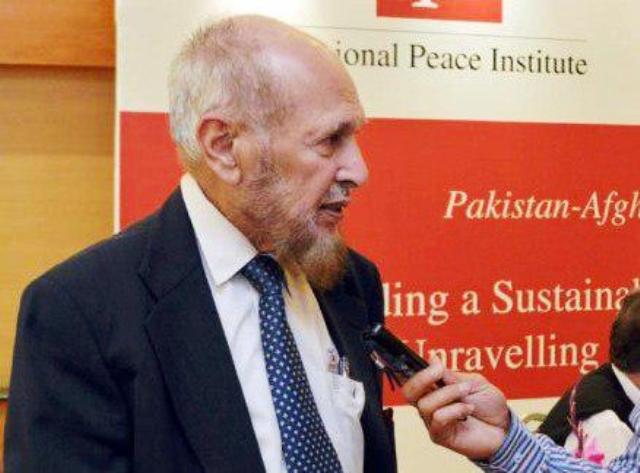
In an interview with IRNA, former Pakistani ambassador to Afghanistan, Rustam Shah Mohmand said that regular interaction between the leaders of Iran and Pakistan is very important for boosting bilateral cooperation and countering common challenges the two countries face at international arena.
He said that the visit will also provide an opportunity to both countries to have candid discussions on different issues.
The analyst went on to say that Iran and Pakistan should pay more focus on bilateral trade because the current level of the trade is far below the actual potential of the trade between the two countries.
“We have the infrastructure for ideal trade, we have the rail, road and sea link, so we should take all measures to enhance trade ties,” noted the former envoy.
Rustam Shah Mohmand said that Iran-Pakistan (IP) gas pipeline would also be discussed during Zarif’s visit. “Pakistan should complete the project as early as possible to cater its growing energy requirements,” he added.
He added that the IP is the most feasible project for Pakistan as the TAPI project cannot be executed till there is peace in Afghanistan.
The analyst expressing his views said situation of Afghanistan would be a major topic of the discussions between Iran and Pakistan during the visit.
He said that Iran is against the presence of American troops in Afghanistan whereas the US wants to stay in the country to keep an eye on China, Iran and Pakistan.
The former ambassador said that a strategy should be formed to force the US to leave Afghanistan as early as possible which would also bring peace and stability inside Afghanistan.
He said that dispatch of Pakistani troops to Saudi Arabia would also come under discussion. He added that Pakistan is still in a position to play a major role to defuse tensions between Iran and Saudi Arabia.
272**6125**1396
Follow us on Twitter @IrnaEnglish
 solhkhabar | Peace International News Agency Peace International News Agency , Peace News , International Agency News of Peace
solhkhabar | Peace International News Agency Peace International News Agency , Peace News , International Agency News of Peace